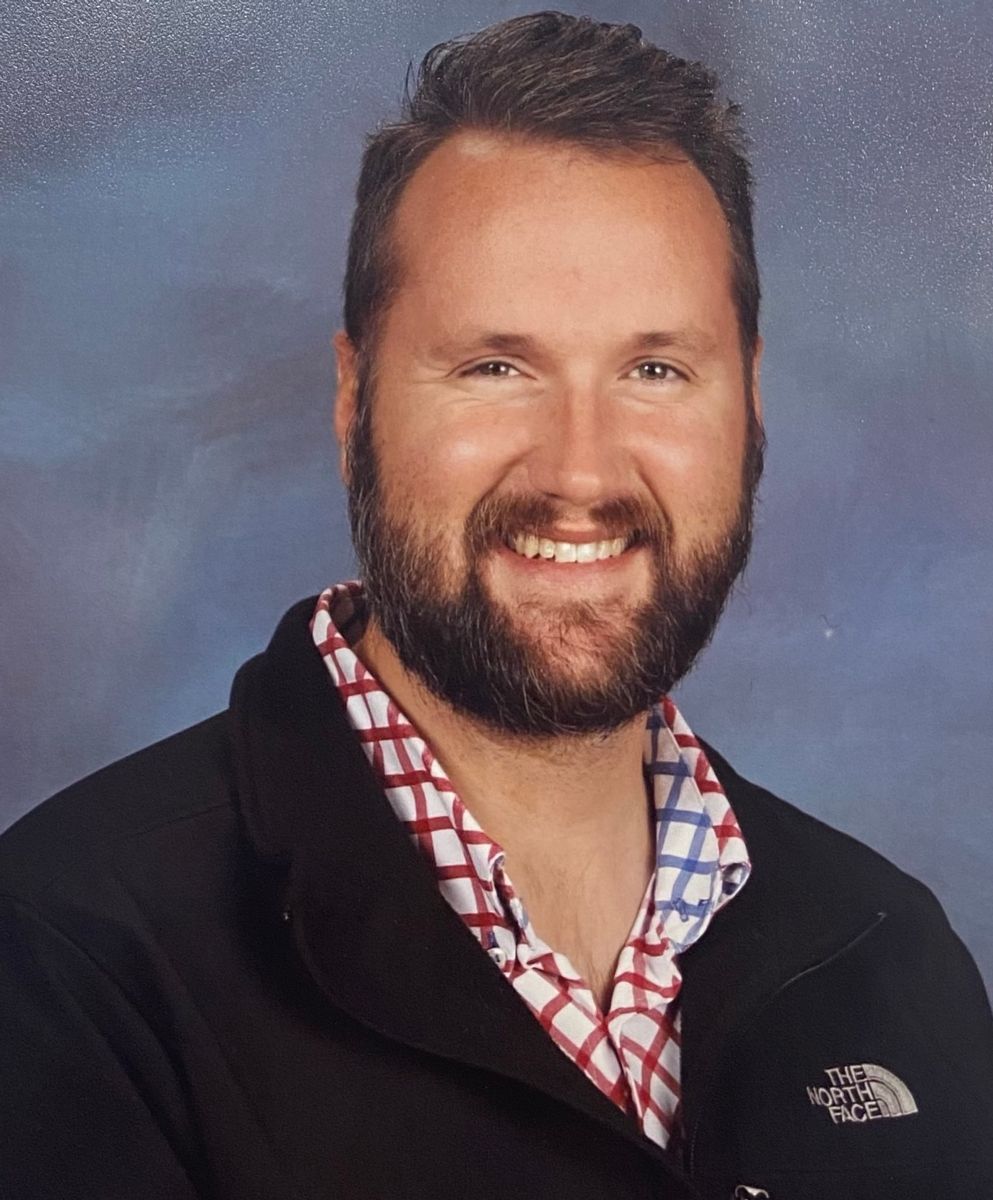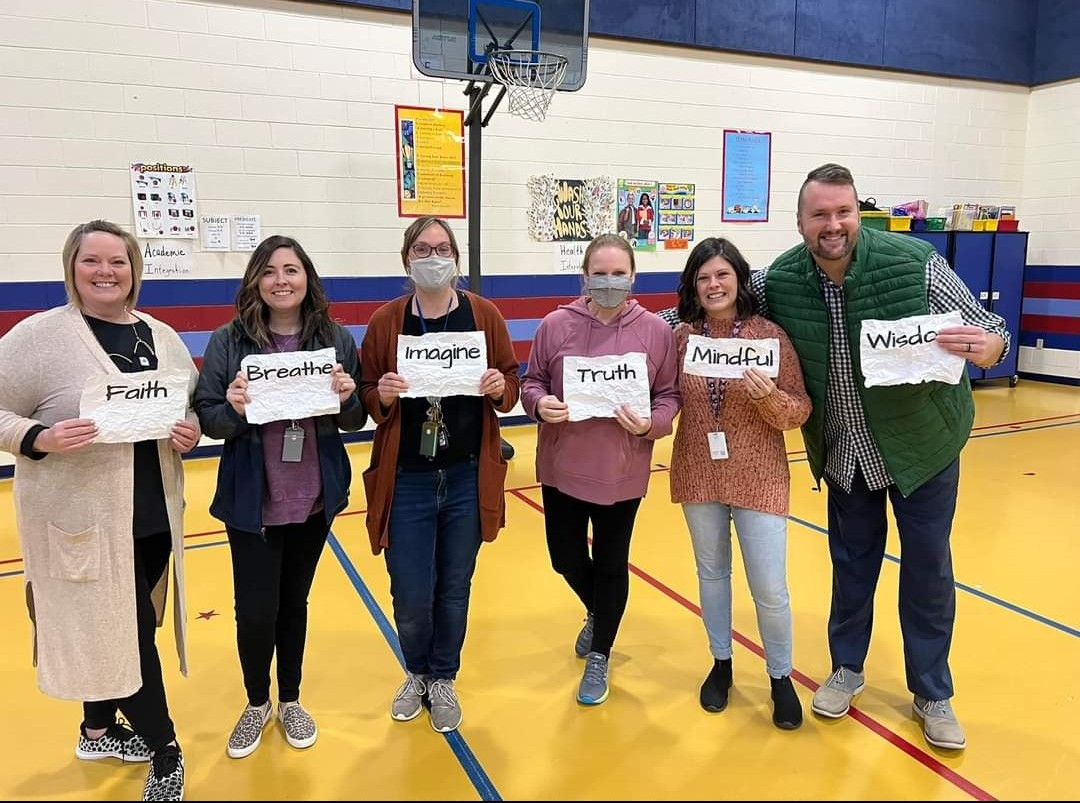
*Note: The following spotlight was written by Noah Somers a senior marketing major and marketing intern for the Department of Government and Alumni Relations.
Dr. Kyle Abernathy is a former Roadrunner and currently the interim principal at Blue Ridge School in Dalton. In 2007, while attending Dalton State, he and his wife April were married. They will celebrate 15 years together this June and have two children, a son and a daughter, attending Dalton Public Schools.
Can you tell us a bit about your academic and professional journey between the time you were a Road Runner and your new role as the Interim Principal at Blue Ridge School?
Absolutely! Upon graduating with my Bachelor of Science at Dalton State, I was first employed as a kindergarten teacher with Gordon County Schools. I worked for Gordon County Schools and Whitfield County Schools before moving closer to home (at that time) and taught third grade. In 2016, I was hired as an assistant principal with Floyd County Schools and was selected as principal for Cave Spring Elementary School in 2019. After news of Cave Spring Elementary’s closure came to surface, my wife and I journeyed back to Dalton, where I was hired as an assistant principal with Dalton Public Schools. In December 2021, I was asked to fill the vacant principal position as interim and have been serving in that capacity with the district since. Part-time, I work as an adjunct professor with Shorter College in Rome, Ga., where I teach master’s level courses for students who are entering the Master of Arts in Teaching Program. I am truly a lifelong learner and advocate for literacy! This love was fostered during my time at Dalton State, and I owe a great deal of gratitude to those who paved the way for me.
The college has been through some substantial changes since your time here. Which of these developments and enhancements to the college are you most excited about? As an alumnus, what new programs or facilities do you hope to see in the future?
I find the degree programs added for secondary grades to be a great advantage for our educators who want to enter the field and stay closer to home to get a good, quality and affordable education. I am partial to the beautiful bell tower that can be seen on a beautiful drive north on I-75! In the future, I would love to see the college of education include more endorsement offerings for the field of education. At the present time, much is being discussed in the field of education regarding the science of reading. It would be advantageous for the college to partner with local districts and their current candidates to provide a rigorous offering of the reading and dyslexia endorsement programs.
As you have progressed through graduate school and your career, what are some key takeaways from your education at Dalton State that have been useful for you?
Dr. Lynn Murphy was extremely instrumental in my influence as an educator. When he was employed at the college, he taught us that we could teach the students anything if we had a well-managed classroom. He specifically taught us from Harry Wong’s research “The First Days of School,” which I still recommend today for anyone stepping into the role as an educator in a PK-8 setting. As a result of Dr. Murphy’s instruction and his mentorship, I was able to take what I learned into the classroom setting and create an academically challenging environment for all learners. Of course, he, Joan Chapman, Dr. Debbie Baxter, Dr. Lelia Mullis, Dr. Larry Cooper and Dr. Sharon Beavers, to name a few, were instrumental in paving the way for me to become the best educator I could be. Furthermore, they saw my leadership potential I did not see at the time, and here I am today, doing what I am passionate about and love.
Working for a school in Dalton, what is your perspective on the college’s involvement with local schools? How do you think the school could enhance its connection with local schools and students? Do you feel, working with elementary school students, that they could benefit from the college’s involvement with that age group?
I have had the opportunity to serve on the Teacher Education Council (TEC) with Dr. Sharon Hixon to offer support as a stakeholder. At Blue Ridge School, we have designated a room as the “Dalton State Room,” where our student teachers can use it as a space for learning and planning lessons. I would love to see more student teachers in our building at the field experience level all the way to student teaching, as there is so much to be gained in learning from our instructional experts in the building. I hope that this partnership can continue, and over time, we can provide more opportunities for students to complete their educational journey in the school to begin building a rapport with experts in the field. In turn, this will directly impact student achievement for us and will provide opportunities for teacher candidates to gain much professional knowledge in the elementary classroom.

What, in your opinion, makes a successful principal? What do you feel are some key qualities you possess that help you help the students?
A successful principal will listen. Principals in the 21st century are considered the building’s instructional leader. In many years past, the principals were relegated to more operational functions of the building, whereas today’s principal has to be abreast of the many different challenges and opportunities that come with student learning. So, listening, I believe, is the first step to becoming a successful principal. Listening to our stakeholders, families, students, teachers and community members is vital to my success as a principal. Above all, I must be approachable, visible and human. When I am these things, my people can thrive, and trust is built. Where trust is built, students will learn!
Did you have a mentor when you were in school or when entered your field? If so, how did they help you, and how do you feel current Dalton State students could benefit from an Alumni Mentorship program?
I did have a mentor my first year of teaching, Mrs. Andrea Salmon, who was an experienced educator with Gordon County Schools. At the time, I remember her coaching me to be open to small group instruction in reading where I would meet with every child every day. This led to my success as a reading teacher. I went on to get my doctorate through Liberty University and designed my dissertation around literacy intervention which is truly my passion. I would love to see an alumni mentorship program, especially with the school of education, as collective teacher efficacy is at the top of traits considered to have the highest effect size. If we can build teacher efficacy through mentorship, we can help bring change to our community. I am excited about that prospect!
Finally, do you have any advice or wisdom you would like to share with other students and alumni?
My advice would be to soak up as much knowledge and expertise in the field while getting your degree. Then while you become employed, take time to listen to all of those around you, especially those who want to help you grow. Find those people who challenge you and inspire you to do better—then do it. Before jumping into the next degree or project, take a year to develop your craft. Then, become a lifelong learner. You can do it!

